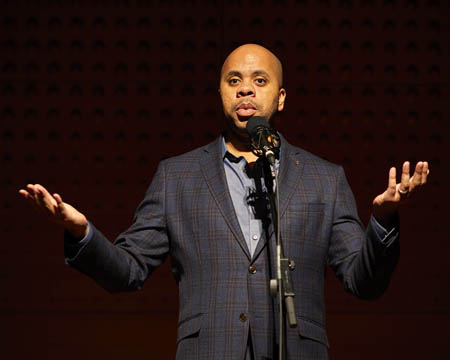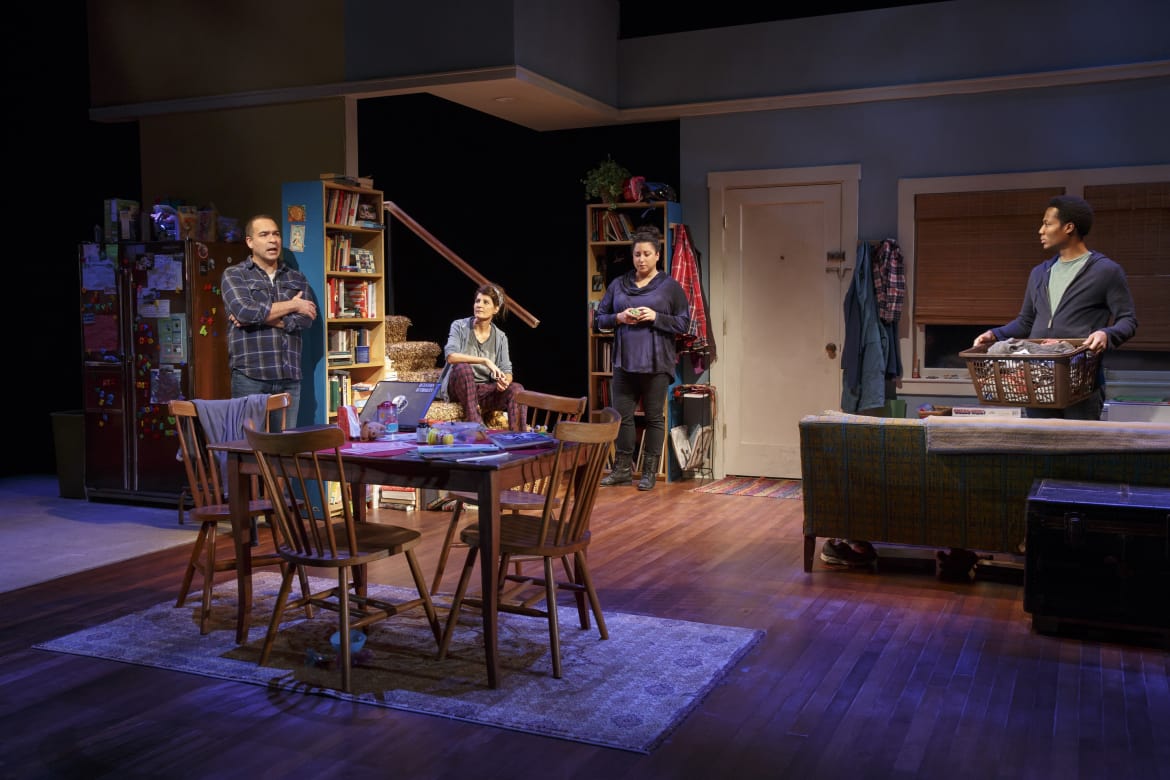by: JK Clarke
The annals of American history are littered with stories of citizens acting against their own interests and suffering dire consequences (e.g. industrial revolution factory workers opposing unionization despite inhumane working conditions and sub-poverty compensation). We as a people have taken some breathtakingly bad positions on numerous issues over the centuries. One of the more recent self-inflicted wounds is the creation of a health-care industry that is so zealously profit-driven that countless middle-class families throughout the country have been driven to financial ruin as the result of a major health crisis in the family. Mercy Killers, written and performed by Michael Milligan and currently playing at the Stella Adler acting studio at the Working Theater, offers a glimpse at one such family.
When we first meet Joe, the American everyman from somewhere in West Virginia, he is seemingly three sheets to the wind and being interrogated by the police. He’s been arrested for something we guess may be along the lines of a DUI. But Joe insists, belligerently, that his story be heard. Without interruption. And the story that unfolds is nothing short of heartbreaking. Joe tells the tale of a struggling young couple who are living a relatively comfortable lower-middle class life until the day his wife is diagnosed with cancer. All seems manageable because she has health insurance, but then the premium is canceled (for a purely “bureaucratic” reason) and they are left destitute. And that’s just the tip of the iceberg. It’s a gut-wrenching story whose details are probably all-too-common and categorically unnecessary: predatory lending has forced him to foreclose on his house; Medicaid restrictions have pushed him into divorcing his wife so she can qualify for care; and all his attentions to these problems have kept him from maintaining his auto shop, leading him into dishonest business practices. Joe’s life is the personification of Murphy’s Law at the behest of a corrupt social system.
While Joe and his story are entirely sympathetic, he doesn’t come across as a particularly likeable character. Despite his understandable state of mind, it’s difficult to listen to someone who sounds plastered (even if he isn’t) talk about his personal problems for over an hour — one actually feels sympathy for the detectives he’s addressing. Furthermore, the piece piles social issue upon social issue to the point of exhaustion. Even if your socio-political points-of-view align 100% with the issues put forth in the play, by the end you can’t handle anymore. It’s overkill to the point of feeling propagandist. Which really is too bad, as the main thrust is valuable and dramatic and Milligan’s performance is terrific. Theater is not meant to always be easy and light, certainly, but there’s a point at which enough is enough. Mercy Killers, unfortunately, and despite its incredibly important message(s), crosses that line.
Mercy Killers. January 6 – February 2 at the Working Theater (31 West 27th at Broadway); February 5-9 at the United Federation of Teachers Bronx Borough Office; February 11-16 at the IBEW & Joint Industry Center Auditorium, Queens, NY. www.mercykillerstheplay.com
Photo: Lia Chang























